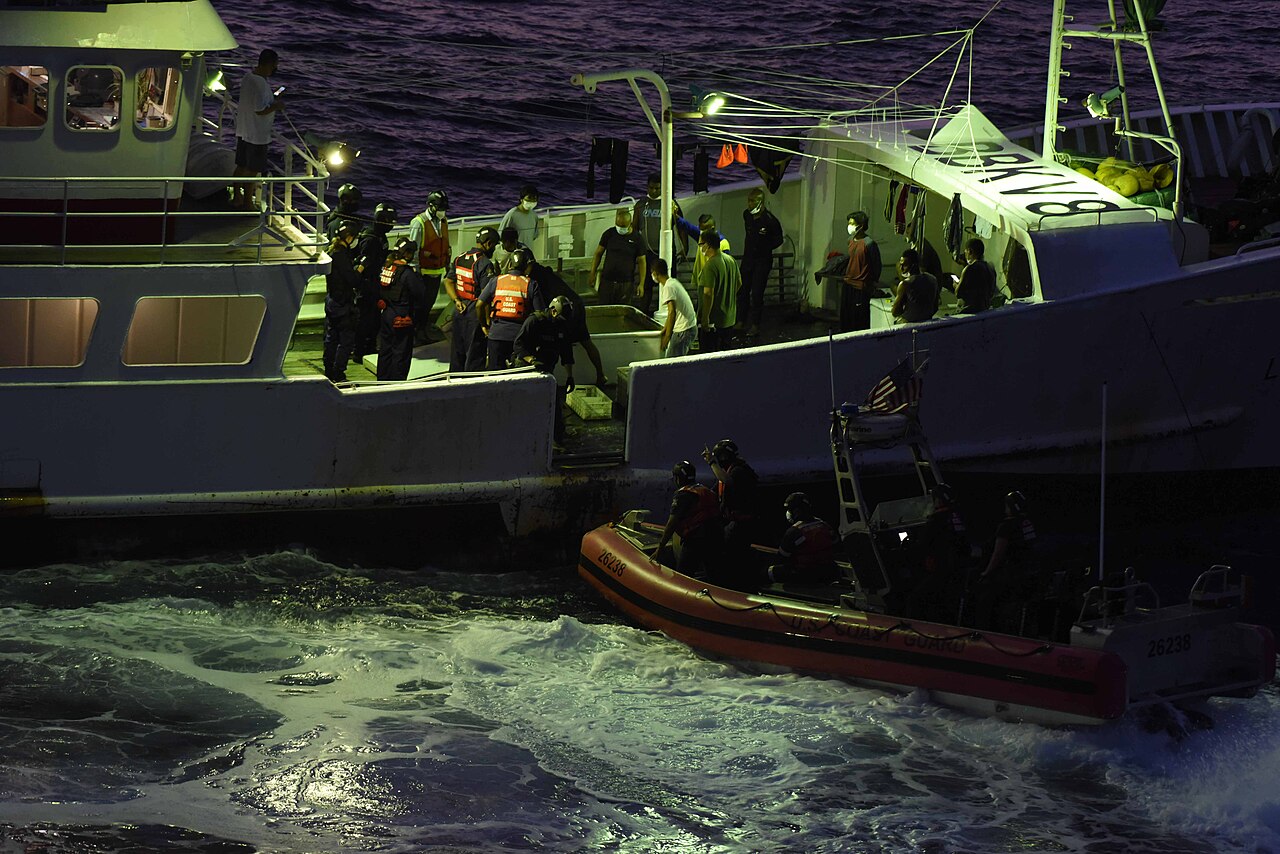#1 Mexico
The Mexican government is confronted with critiques that it is unable to prevent the once abundant and now endangered but highly valued Totoaba, a ray-finned fish species (Totoaba macdonaldi) from illegal fishing practices in the upper Gulf of California. Poachers catch Totoaba with illegal gill nets in which an even more endangered species, the Vaquita, a porpoise species (Phocoena sinus) gets entangled as well. The Commission for Environmental Cooperation which investigates law enforcement in the USA, Canada, and Mexico, states that Mexico fails to implement existing regulations.
#2: Peru
Chinese distant fishing fleets, known for illegally plundering seafood stocks around the globe, are keen on the giant Humboldt squid (Dosidicus gigas) dwelling in August in Peruvian waters. To prevent the yearly assult of hundreds of Chinese vessels, Peru has established a satellite-tracking system, but is yet unsure about its deterring effect.
Read more
#3: Chile, Uruguay
While landings of reported illegal fishing are now near to zero in most Latin American countries, the cases have increased in Chile and remain high in Uruguay, where the port of Montevideo is the preferred aim of illegal vessels.
Read more
#4: Banning industrial fisheries works
Marine protected areas (MPAs) cover around 8 percent of the ocean surfaces by today, whereas the goal is still to reach 25%. A recent study shows that MPAs where industrial fishing is banned altogether are succeeding in preventing poaching.
Read more
#5: Empowering local fishing communities
alOcean Outcomes, a US-based NGO, promotes science-based sustainability initiatives across seafood supply chains, including small-scale fisheries and local stakeholders, combining sustainability and socio-economic issues. Strong local fishing communities are a corner stone in combatting illegal fisheries.
Read more
#6: Supporting countries in complying with fishery rules
Regional Fisheries Management Organizations (RFMO) established rules for their member countries in order to prevent overfishing. Another US-based entity, the Pew Foundation, found that it is also crucial to know who is actually following these rules, and to what extent. In order to support countries in this task, Pew recently presented its fisheries compliance review tools. Enforcing the rules is another corner stone against illegal practices.
Read more
Title picture:
A team of five Fijian law enforcement officers works with a team from U.S. Coast Guard Cutter Munro during a boarding of a China-flagged fishing vessel off the coast of Fiji, April 18, 2022.
(Credit: Nate Littlejohn, US Coast Guard / Wikimedia Commons)


Schreibe einen Kommentar
Du musst angemeldet sein, um einen Kommentar abzugeben.